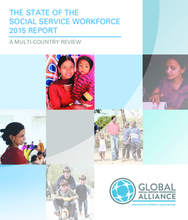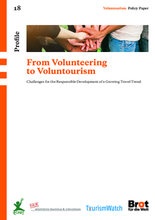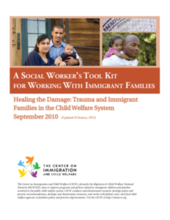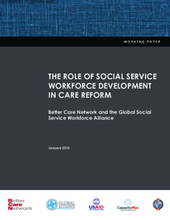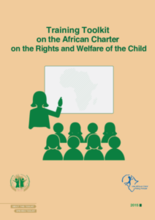Displaying 411 - 420 of 507
This first annual report from the Global Social Service Workforce Alliance, published on June 10, 2015, sheds light on the social service workforce, an important group of people who help to ensure that effective prevention and support services reach those who need it most.
The 2nd Annual Global Social Service Workforce Alliance Symposium was held on June 10, 2015. The full webcast, presentations, and summary are now available.
This video provides instruction on the code of ethics and other standards of care for those who work in the field of Child and Youth Care.
This study aimed to bridge the gap in knowledge of the relationship between general mental health and working with unaccompanied asylum-seeking refugee children who are due for forced repatriation for social workers and police officers in Sweden.
This publication serves as a guide for responsible voluntourism, both for volunteers and volunteer tour operators.
Este taller está diseñado para entrenar los expertos técnicos en los valores y principios básicos involucrados en la labor del trabajo de Protección de Niñez y Adolescencia.
This toolkit, originally published in September 2010 and updated in February 2015, serves as a resource for social workers in the US who are working with immigrant families within the child welfare system.
This paper discusses and examines the lessons learned from the Munro Review relevant for looked after children. The Munro Review provides an analysis of the current state of the child protection system, challenging bureaucratised practice and arguing for a reclaiming of professional social work identity, knowledge and understanding.
This working paper, produced by the Better Care Network and the Global Social Service Workforce Alliance, explores the topic of social service workforce strengthening as it relates to child care reform.
This toolkit is designed to increase knowledge of the rights and duties provided in the ACRWC and ACERWC, educate government officials on the obligations of State Parties and inform civil society actors on the contents of the Charter as well as the mechanisms for engaging with the ACERWC.

